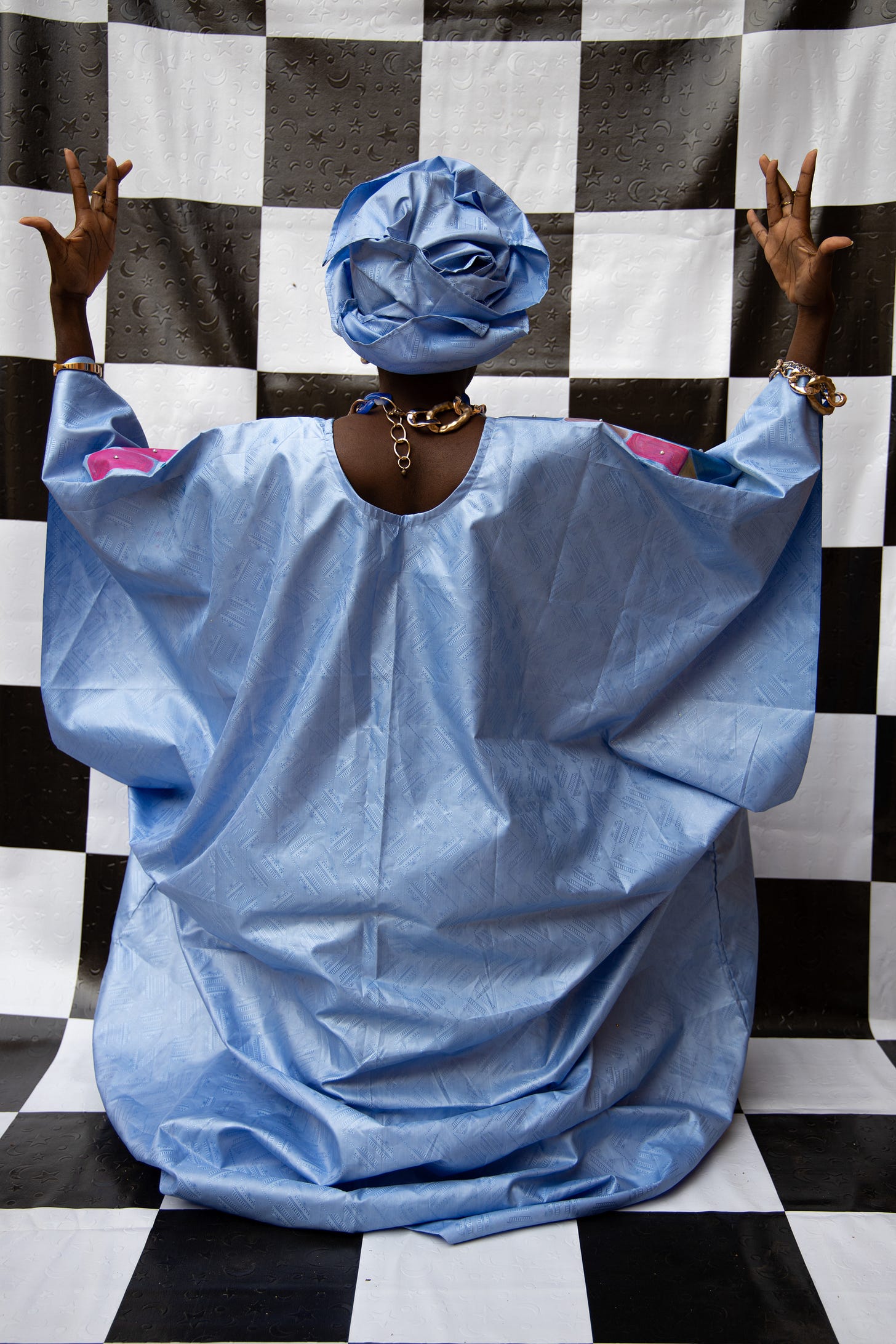An afternoon of mellow heat. The photographed rider sits on his motorcycle close to the bend of a road, right in front of the tattered canopy of a fruit seller. The street behind him is a quiet riot of goods—the apples, bananas, clementines, the jerseys. A parked taxi welcomes the immaterial purchase of a journey, the same exchange suggested by the motorcycle. And then, what can be said about this golden helmet worn by the motorcyclist, dotted with symbols of cowrie shells and spiked with horns? You encounter such instances on any street, where the sculpture of an object seems even more meaningful than its function, so that beauty is never impracticable.
Djibril Drame: “My photography is a form of therapy for humanity.”
This photograph was taken in Tambacounda, Senegal.
It was not easy taking it because Africans are still afraid of being photographed. But I made sure to chat with my model before asking him to pose, making sure that he is okay.
I love the photograph because of the presence of the model and the value of African youth.
My photography is a form of therapy for humanity. It's full of compassion, love and understanding.
Visual literacy is important and photography is the heart of it. A photograph teaches us 1000 words.
Two other photographs by Djibril Drame
Djibril Drame is a Senegalese visual artist. His work, as he writes on his website, “reflects the many aspects of Africa’s multifaceted history and innumerable intertwined cultures.” In particular, the second photograph is from “Forgotten Icons,” a series on two Senegalese musicians, traditional singer Yande Codou Sene and tassukat Aby Gana Diop.
Last Week — Keren Lasme
We live in a generation that is very visual mainly due to the networks we use to share, communicate and connect with the world around us. Hence, photography becomes important in sharing messages that uplift us as humans, to transmit messages of hope, joy and healing.
Read more: Beneath Our Skin Lies the Sun
Support Djibril Drame
Thank you for reading and sharing this feature. Follow Djibril on Instagram, and see more work on his website.
Support Tender Photo
This is the 24th edition of the newsletter. Every week I feature one photograph and the photographer who took it. You’ll read a short caption from me, and a statement from the photographer. My goal is to set up conversations with the work of early to mid-career African photographers. If you know of any photographer whose work is deserving of attention, please email me with their name(s).
What readers are saying
Gorgeous photographs and a discovery. I’d never heard of this photographer. Thank you! — Ayodeji Rotinwa, deputy editor of African Arguments, on “Soft” by Namafu Amutse.









Super!!!’
Deo Kuset is a photographer you could feature.